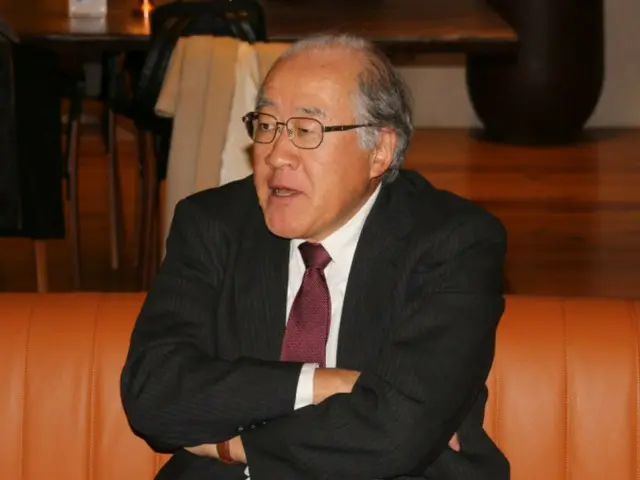He advises the Japanese government as an expert, and in 2010 conducted an analysis of South Korea in a study titled ``Analysis of the Cost-Benefits of Unification of the Korean Peninsula for Japan.''
I met Professor Fukao, who visited Korea on the 17th at the invitation of the Small and Medium Enterprise Venture Research Institute, at Centropolis in Jongno-gu, Seoul. Korean venture
Professor Fukao, who criticized Japan's startup environment for its lack of strategies for nurturing startup companies, expressed interest in Japan-Korea cooperation to foster startup companies.
We spoke to Professor Fukao about the Korean economy, which is catching up with Japan's slow growth. Professor Fukao expressed a negative outlook on the future of the Korean economy. Professor Fukao’s thoughts on the future of the Korean economy
Factors of concern were high dependence on the Chinese economy, real estate bubble, and declining birthrate and aging population. The Institute of Developing Economies (IDE), where Professor Fukao is the director, makes an announcement together with the World Trade Organization (WTO)
According to the report titled ``Global Value Chains (GVCs) and Economic Security Issues,'' South Korea is highly dependent on China for both supply and demand. Professor Fukao said, “The Chinese economy
``I am pessimistic about the future of Korea, but if problems arise in the Chinese economy, the damage that South Korea will suffer will be enormous.'' It won't happen.''
he advised. Professor Fukao also suggested the reorganization of GVCs centered around Japan, the US, and South Korea as an alternative. The professor said, ``Japan does not want U.S.-China relations to deteriorate economically, but if we have to choose between the two countries,
``If South Korea also stands on the side of the United States, the basic relationship between Japan and South Korea will be maintained.'' Furthermore, Professor Fukao points out that the excessively high real estate prices in South Korea are also bad for the South Korean economy.
It is said that it is having an impact. The professor points out that the ratio of land assets to South Korea's gross domestic product (GDP) is 5.2 times, and says it is ``similar to when Japan's bubble burst.''
``Household debt increases when real estate assets increase.If price increases are moderate, it will help eliminate debt, but if the current level of inflation is high, we will face a difficult situation.''
are doing. The country's birthrate, which dropped to 0.7 in the second quarter, the lowest in the world, is also a "very serious problem," he said. Professor Fukao said, ``South Korea is experiencing rapid economic growth due to an insufficient social security system.
"We are experiencing a population decline, which is even more serious." He went on to say, ``It is predicted that 10% of Japan's population will be foreigners in 30 years,'' adding, ``South Korea will probably have a similar number of foreigners as Japan.
There will come a time when you will depend on When considering the quality of labor, I think it will be difficult for South Korea to maintain its current economic growth."
However, the outlook is bright for Korean ventures and start-up companies, which are becoming revitalized. japan long term
He points out that the economic downturn is not only due to the economic structure centered on large companies, but also to an environment in which it is difficult to innovate, and predicts that the environment surrounding Korean ventures and start-up companies may become a new driving force for growth.
There is.
2023/11/20 07:01 KST
Copyrights(C) Edaily wowkorea.jp 107

